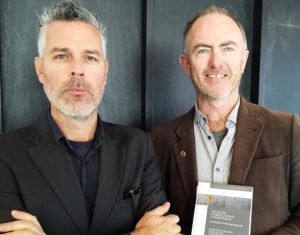
Not enough is being done about entrenched corruption in prisons; a problem that needs addressing to improve the chances of prisoner rehabilitation in detention, new research from Flinders University has found.
Prisons and governments should address corruption, including drug trafficking, attacks on prisoners, and other practices which support the prison black economy, to return the focus back to helping prisoners to reform, says Professor Andrew Goldsmith, from Flinders Centre for Crime Policy and Research.
“Without trust and accountability in the system, correctional services cannot perform their important duty of helping offenders to rehabilitate and re-enter society with much lower chances of re-offending,” says the Flinders Law School Professor in Criminal Justice.
Professor Goldsmith says the political incentive to change correctional systems has not matched public concerns about rising crime rates.
“If we are worried about rising crime rates, we need to focus more on the negative effects of sending people to prison and in particular on tackling the conditions in our prisons that undermine prospects for rehabilitation and reintegration,” he says.
Professor Goldsmith, Professor Mark Halsey from Flinders University, and former Flinders researcher and now Deakin University criminology lecturer Dr Andrew Groves have compiled the Tackling Correctional Corruption book as part of a new, international series on crime prevention and security management (Palgrave Macmillan)
The research was based on data from prison systems in the UK, US and Australia.
Rather than just tackling prison corruption alone, the authors call for a broader approach to correctional integrity’.
“While prison activities are generally hidden from the outside world, there is ample evidence of corruption in correctional institutions,” Professor Goldsmith says.
“The scale of criminality and misconduct that can go on in prison has an effect not just the good order of the prison and the rights of prisoners but on the prospects for successful reintegration of ex-prisoners into society.”
Suggestions for rebuilding trust in the corrections system, and providing more support for prisoner reform include:
- Greater acknowledgement of the forms and causes of corruption inside prisons.
- More access to drug and alcohol treatment for prisoners.
- Greater availability of training and education programs for prisoners.
- Clearer training and monitoring of prison staff around relationships with prisoners, their families and associates.
- Stronger whistleblower protections for staff who want to report work-related corruption or other misconduct.
- Use of random searches of staff arriving at, during, and leaving work.
- More thorough pre-employment screening of applicants for prison jobs.

